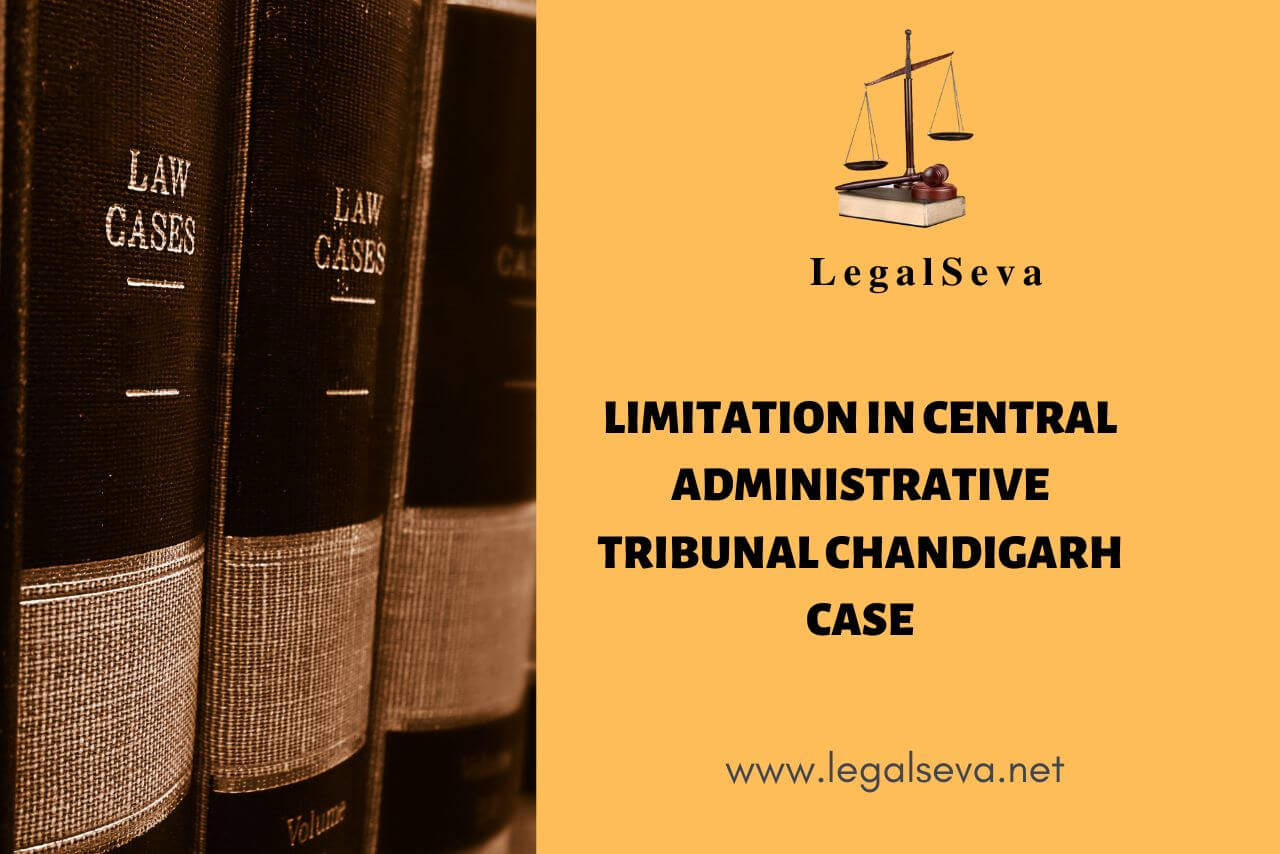Last Updated on November 12, 2022 by Satish Mishra
Limitation basically means a prescribed period under which a person should file his litigation. In India, The Limitation Act, 1963 is the act which governs the time period in which a litigation should be instituted and a legal remedy can be obtained. The Condonation of Delay, prescribed under Section 5, means the sufficient cause in which court can accept the delay of filing the litigation. However, it is not a concrete concept and it changes with case to-case basis like when in Supreme Court in G. Ramegowda, Major, Etc vs Special Land Acquisition held that “sufficient cause” is to be interpreted liberally so as to pursue substantial justice. In this case study, the applicant delayed the filing of Application in Central Administrative Tribunal by 1651 days. The applicant for seeking condonation of delay refereed Section 5 of the Limitation Act 1963 read with Section 21 of Administrative Tribunals Act. Supreme Court in reference to Section 21 of Administrative Tribunals Act in Union Of India & Ors vs A. Durairaj (Dead) while examining Union of India v. M.K. Sarkar stated that “ The issue of limitation or delay and laches should be considered with reference to the original cause of action and not with reference to the date on which an order is passed in compliance with a court’s direction”. The tribunal while applying this principle stated the same that the cause of action arose when the order came back way back in 2011 and the applicant retired in 2013 but after all this year, the applicant can’t now file application in this regard.
Sodhi Singh vs Union of India
Brief facts in the application
Also Read- J.D.Sandhu vs The Central Administrative … on 26 February .
The application was filed to challenge the order (date: 8.11.2011) in which the applicant’s response was rejected in regards to posting/transfer to DEO Jalandhar. Along with the Original Application, the applicant has also filed a miscellaneous application regarding condonation of delay of 1651 days of filing Original Application under Section 5 of the Limitation Act 1963 read with Section 21 of Administrative Tribunals Act. (Section 5 of the Limitation Act 1963: Extension of prescribed period in certain cases, where it provides that a court can admit an application or appeal, other than an application under any of the provisions of Order XXI of the Code of Civil Procedure, 1908 (5 of 1908), after the prescribed time if the appellant or the applicant is able to satisfy the Court that he has sufficient cause of reason) ( Section 21 of Administrative Tribunals Act: Limitation which provides that a tribunal will not admit an application if that application is regarding the final order made by government or other authority rejecting any appeal preferred or representation made by such person in connection with the grievance unless it is admitted within one year of date on which such final order has been made and if no final order with regard to the appeal preferred or representation made by such person has been made, a period of six months had expired thereafter without such final order having been made, within one year from the date of expiry of the said period of six months.)
The cause for the delay submitted was the applicant got this order only after he filed an application under the RTI Act, that too after he filed a complaint to the Central Information Commission and thus a long delay.
Also Read- Union Of India (Uoi) And Anr. vs Central Administrative .
Observation by the Tribunal
The Applicant’s request for transfer was rejected back in 2011 an in the year 2013, in normal course, the applicant retired. He did not challenge within appropriate time he was in service. The application can’t be accepted after such a delay as cause of action arose when his request for transfer was rejected or when he retired from service. In view of well settled proposition of law laid down in the case C. Jacob Vs. Director Geology and Mining, 2009 (10) SCC 115 and Union of India etc Vs. A. Durairaj, 2011 (3) SC 254, no sufficient reason has been submitted by the applicant
Order
Miscellaneous application and original application, both were dismissed.
Also Read- Anita Yadav Petitioner v. Central Administrative Tribunal
For case specific advice, please contact Chandigarh Administrative Tribunal/Service Matter/Labour and Service/CAT/Legal Aid/Administrative/Senior/Service Employment Lawyers Advocates in Chandigarh Panchkula Mohali Kharar Derabassi Zirakpur etc.
More on 99888-17966.

